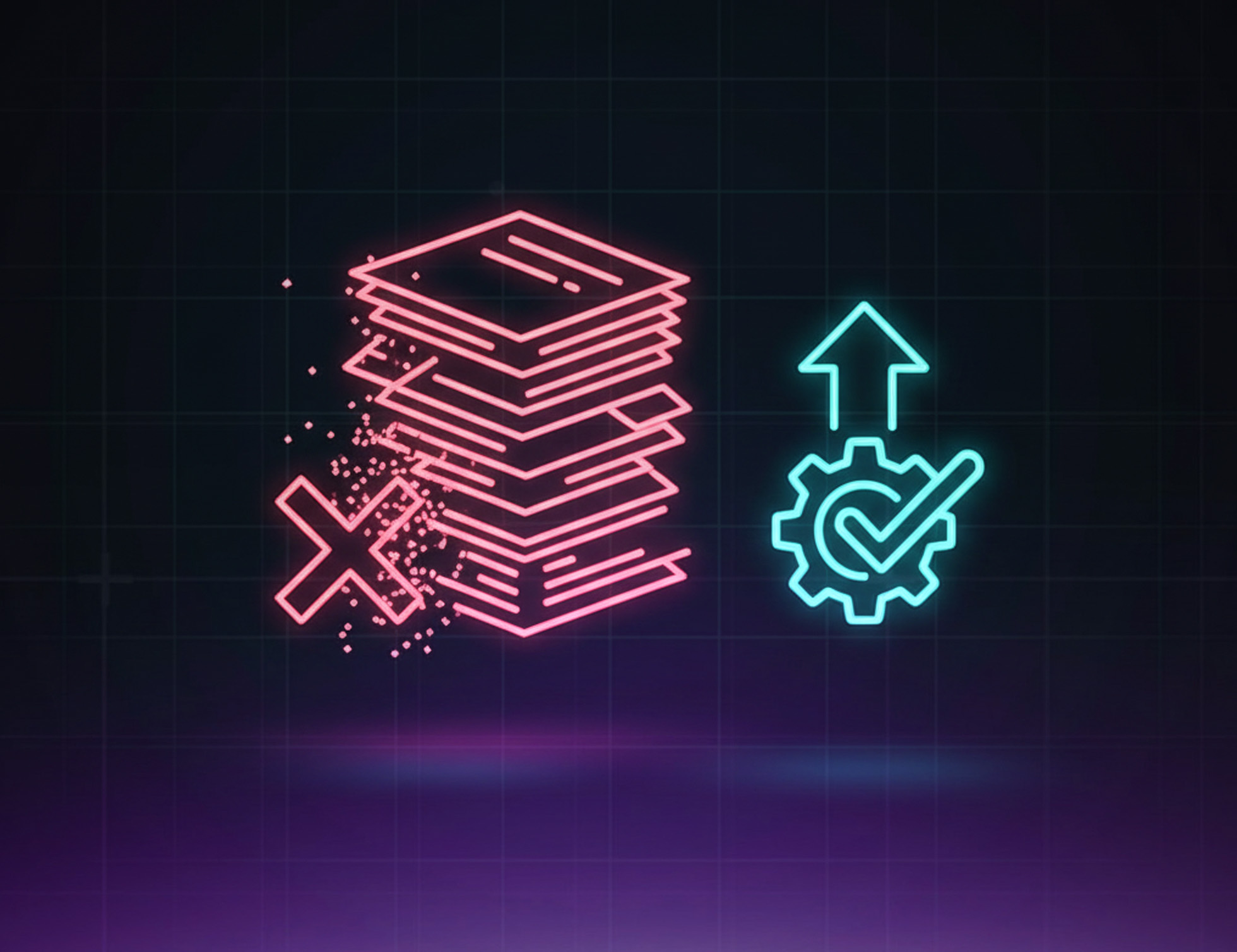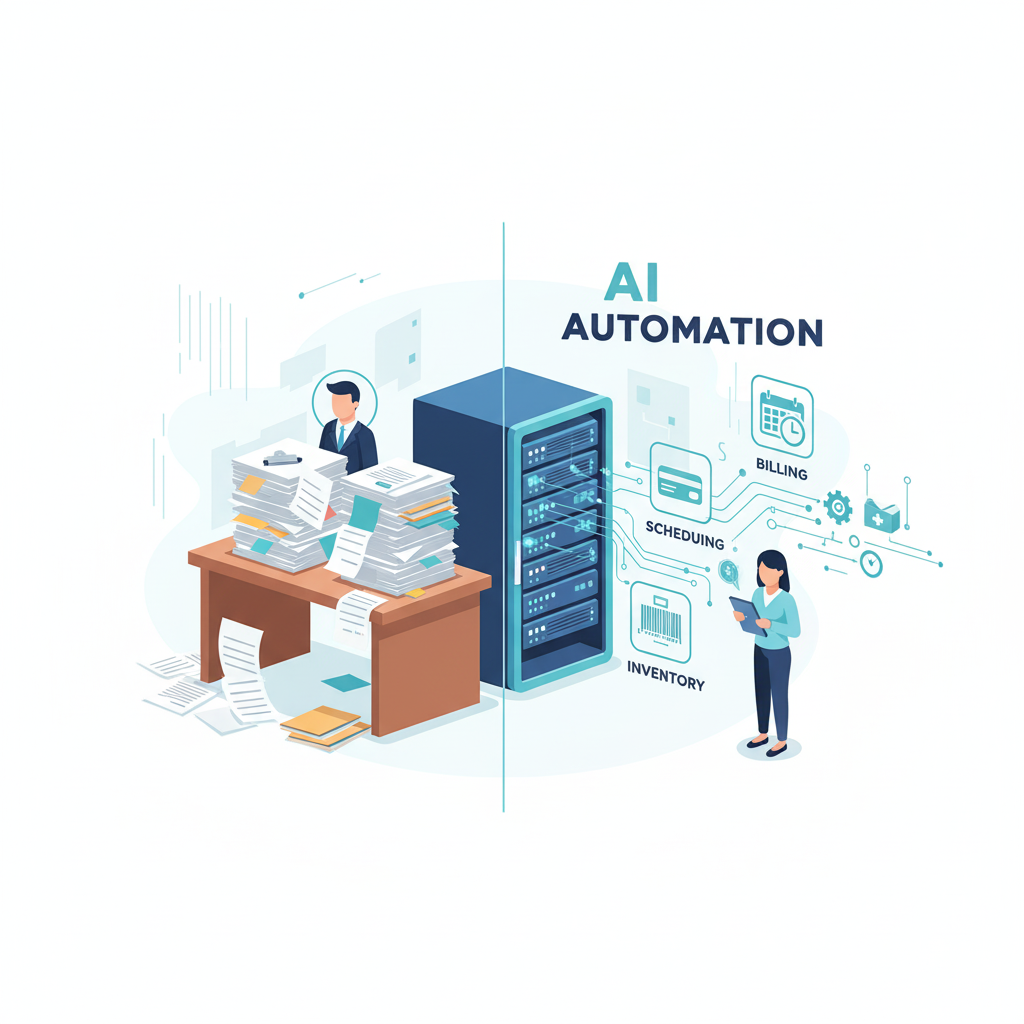Join our newsletter



The healthcare industry is under unprecedented pressure. From the rising demand for services to staff shortages and the growing complexity of operations, hospitals and clinics face a daily balancing act. Much of the conversation around artificial intelligence (AI) in healthcare focuses on diagnostics or patient-facing technologies. But a less visible, equally transformative area is happening behind the scenes: AI in healthcare operations.
This new paradigm is not about futuristic solutions — it’s about using automation, data, and real-time insights to improve the way hospitals function every day. By focusing on healthcare operations automation, institutions are discovering efficiencies that reduce costs, free up staff, and ultimately improve patient outcomes.
The operational side of healthcare is often overlooked, but it represents a massive portion of spending and inefficiency. According to McKinsey, administrative costs account for up to 30% of healthcare spending in the U.S. At the same time, the World Health Organization projects a shortage of 10 million healthcare workers by 2030.
Manual processes — from billing to scheduling — are slow, error-prone, and resource intensive. Hospitals face logistical challenges in everything from inventory management to patient flow. Without intervention, these inefficiencies limit capacity and put additional stress on medical staff.
That’s where AI process automation in healthcare can make a difference, enabling faster workflows and supporting clinicians with the right data at the right time.
AI is no longer experimental — it’s already part of everyday healthcare management. Leading institutions like Mayo Clinic and Cleveland Clinic are using AI to optimize scheduling, predict patient demand, and improve operational efficiency.
Key applications include:
These tools make AI in healthcare operations tangible and practical, not futuristic. They enable hospitals to respond in real time while improving the experience for both patients and staff.

Hospitals spend countless hours on repetitive workflows that can be streamlined with intelligent process automation.
🔗 Learn more in our blog on Smart automations to accelerate tech teams.
Healthcare organizations also manage multiple disconnected systems. Smart APIs make it possible to integrate patient records, insurance databases, and supply chain platforms into one consolidated view.
Mobile apps can streamline patient check-ins and staff allocation.
AI-powered chatbots in healthcare reduce call center load, answering patient queries instantly.
🔗 Explore how scalability works in our blog Why SaaS startups choose Kenility.
Adopting AI in healthcare operations is not just about tools — it requires a clear AI roadmap. Hospitals and clinics need to identify quick wins through pilot projects, establish governance frameworks for compliance, and experiment with new solutions like AI-assisted triage in innovation labs.
🔗 Read more in AI adoption trends in industries.
What truly makes these use cases powerful is not just the technology itself, but the way they fit into the broader healthcare ecosystem. When AI in healthcare operations is thoughtfully implemented, it creates a ripple effect: data flows seamlessly across systems, staff are freed from repetitive tasks, and patients receive a smoother journey through the healthcare system.
For example, a hospital that integrates predictive analytics dashboards with AI supply chain analytics doesn’t just cut costs; it ensures that critical resources like ICU beds or ventilators are available exactly when needed. Likewise, a clinic that combines AI process automation healthcare with chatbots for patient communication doesn’t just save administrative time; it reduces waiting lists and improves satisfaction.
These integrated approaches show how operational efficiency becomes a direct driver of better care delivery. And this is where the numbers speak louder than theory.
Administrative complexity is one of the biggest hidden costs in healthcare. Deloitte estimates that administrative expenses represent more than one-third of total U.S. healthcare spending, creating enormous pressure on margins and staff productivity [Deloitte, AI in Hospitals].
Industry benchmarks suggest that automation could make a measurable difference. A Citi Global Insights report highlights that between 25% and 30% of administrative costs could be reduced through AI and automation [Citi Global Insights, 2023]. This means that hospitals and insurers stand to save billions of dollars simply by streamlining repetitive back-office tasks.
At the same time, digital front-end solutions such as AI-powered chatbots in healthcare are proving their value in reducing the load on call centers. While results vary by institution, case studies show that AI-driven self-service can significantly decrease the volume of patient calls, enabling staff to focus on critical, high-value interactions [LinkedIn Insights, 2023].
The bottom line: when AI in healthcare operations is implemented thoughtfully, it delivers both financial savings and operational resilience. More importantly, it frees up scarce resources — time, people, and budget — so they can be reinvested directly in patient care.

Just as space exploration required vision and collaboration, healthcare today requires curiosity and innovation to solve operational bottlenecks. The good news is that unlike the space race, hospitals don’t need decades to see results. With solutions like AI process automation healthcare, predictive analytics dashboards, and AI supply chain analytics, change can happen now.
AI in healthcare operations is the backbone of a more efficient, resilient, and patient-centered system. The institutions that embrace it will be better prepared to face the challenges of tomorrow.
👉 We help healthcare providers design AI roadmaps, real-time dashboards, and automation strategies that improve efficiency and outcomes. Explore more in our Blog.